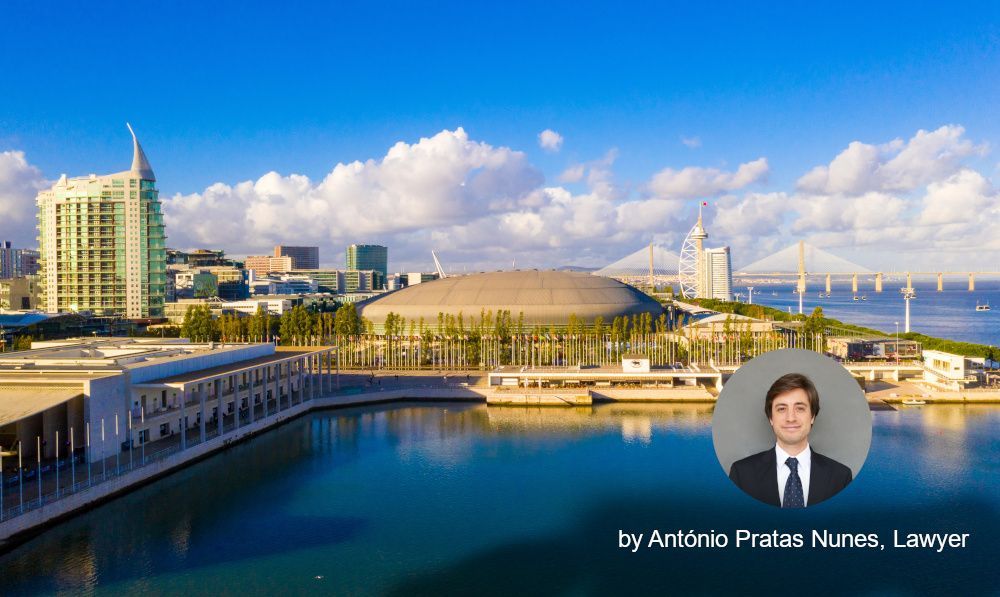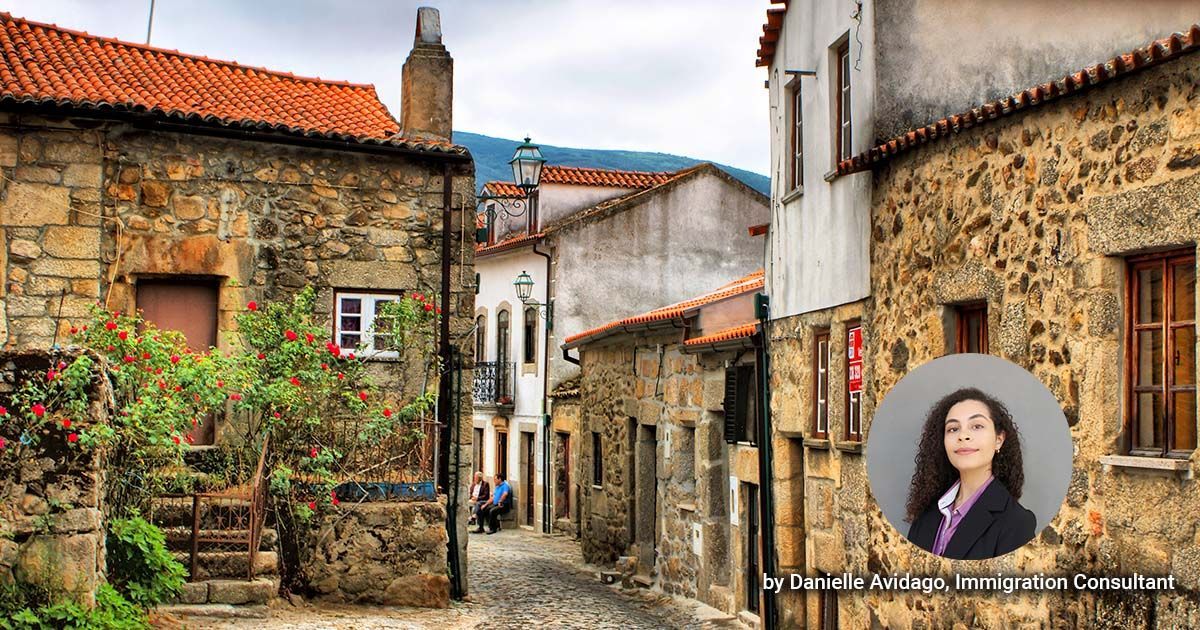New State of Emergency - What Changes from 9th November Onwards
18 November 2020
A new State of Emergency has been declared on 6th November 2020 by the President of the Portuguese Republic. This new regime has come into force at 12am on 9th November and will be re-evaluated every two weeks.
Tighter measures and restrictions have been put in place to stop the spread of the Coronavirus in the country. In order to better understand the rules, please find below more information.
When is circulation forbidden?
In 191 municipalities with high-risk of Covid-19, the circulation of people on the public road is prohibited between 11pm and 5am on weekdays and from 1pm onwards on Saturdays and Sundays.
According to the Prime Minister, António Costa, these measures are a response to the fact that, most Covid-19 cases emerge from social interaction, stating that “68% of the contaminations occur in the family environment and in contact with family members, 12% in the workplace, 8% in homes, 3% in schools, 3% in social interaction, 1% in health services”.
Which municipalities are covered by this prohibition?
At this moment, the 191 municipalities where the circulation of people on the public road is prohibited are:
Alcácer do Sal; Alcochete; Alenquer; Alfândega da Fé; Alijó; Almada; Amadora; Amarante; Amares; Arouca; Arruda dos Vinhos; Aveiro; Azambuja; Baião; Barcelos; Barreiro; Beja; Belmonte; Benavente; Borba; Braga; Bragança; Cabeceiras de Basto; Cadaval; Caminha; Cartaxo; Cascais; Castelo Branco; Castelo de Paiva; Celorico de Basto; Chamusca; Chaves; Cinfães; Constância; Covilhã; Espinho; Esposende; Estremoz; Fafe; Felgueiras; Figueira da Foz; Fornos de Algodres; Fundão; Gondomar; Guarda; Guimarães; Idanha-a-Nova; Lisboa; Loures; Lousada; Macedo de Cavaleiros; Mafra; Maia; Marco de Canaveses; Matosinhos; Mogadouro; Moita; Mondim de Basto; Montijo; Murça; Odivelas; Oeiras; Oliveira de Azeméis; Oliveira de Frades; Ovar; Paços de Ferreira; Palmela; Paredes de Coura; Paredes; Penacova; Penafiel; Peso da Régua; Ponte de Lima; Porto; Póvoa de Varzim; Póvoa de Lanhoso; Redondo; Ribeira de Pena; Rio Maior; Sabrosa; Santa Comba Dão; Santa Maria da Feira; Santa Marta de Penaguião; Santarém; Santo Tirso; São Brás de Alportel; São João da Madeira; Sardoal; Seixal; Sesimbra; Setúbal; Sever do Vouga; Sines; Sintra; Sobral de Monte Agraço; Trancoso; Trofa; Vale de Cambra; Valença; Valongo; Viana do Alentejo; Viana do Castelo; Vila do Conde; Vila Flor; Vila Franca de Xira; Vila Nova de Cerveira; Vila Nova de Famalicão; Vila Nova de Gaia; Vila Pouca de Aguiar; Vila Real; Vila Velha de Ródão; Vila Verde; Vila Viçosa; Vizela.
On 16th November, 77 more were added:
Abrantes; Águeda; Albergaria-a-Velha; Albufeira; Alcanena; Aljustrel; Almeida; Almeirim; Alvaiázere; Anadia; Ansião; Arcos de Valdevez; Arganil; Arronches; Boticas; Campo Maior; Cantanhede; Carrazeda de Ansiães; Castro Daire; Celorico da Beira; Coimbra; Condeixa-a-Nova; Coruche; Crato; Cuba; Elvas; Estarreja; Évora; Faro; Ferreira do Alentejo; Figueira de Castelo Rodrigo; Freixo de Espada à Cinta; Grândola; Ílhavo; Lagos; Lamego; Mangualde; Manteigas; Mealhada; Mêda; Mira; Miranda do Corvo; Miranda do Douro; Mirandela; Monforte; Montalegre; Montemor-o-Velho; Mora; Murtosa; Nelas; Oliveira do Bairro; Ourém; Pampilhosa da Serra; Penalva do Castelo; Penamacor; Penela; Ponte de Sor; Portalegre; Portimão; Proença-a-Nova; Reguengos de Monsaraz; Resende; Salvaterra de Magos; São Pedro do Sul; Sátão; Seia; Sousel; Tábua; Tavira; Torre de Moncorvo; Vagos; Vieira do Minho; Vila do Bispo; Vila Nova de Foz Côa; Vila Nova de Paiva; Vila Real de Santo António and Viseu.
What kind of circulation is allowed?
According to the Government, there are a few exceptions, which include:
- Travel for work purposes or equivalent, with the requirement of a declaration . This declaration must be:
- issued by the employing entity or equivalent,
- issued by oneself, in case of self-employed workers, sole proprietors and members of a statutory body, or
- an affidavit, in the case of workers from the agricultural, stock-farming, and fishing sectors;
- Travel for health purposes (to healthcare facilities or pharmacies);
- Travel for emergency sheltering of victims of domestic violence or human trafficking, as well as children and young people at risk;
- Travel to assist vulnerable people, people with disabilities, children, parents, elderly or dependent people;
- Travel to fulfil parental responsibilities;
- Travel to take hygienic walks and to walks pets;
- Travel to grocery stores and supermarkets or other establishments which sell food and hygiene products, for people and animals;
- Travel for veterinary emergencies;
- Travels necessary to press freedom;
- Travel for other reasons of force majeure;
- Return home from the allowed travels.
- The following professionals do not require a declaration:
- Health professionals and other workers from healthcare and social care institutions;
- Officers from the national civil protection, security forces and services, military, militarised and civilian personnel of the Armed Forces, and inspectors of the Authority for Economic and Food Safety;
- Magistrates, officers of the social partners and political parties represented in the Portuguese parliament and people with a free pass issued under the legal terms;
- Ministers of religion, through accreditation from the competent bodies of the respective church or religious community;
- The staff of diplomatic, consular missions and international organisations located in Portugal, as long as related to the execution of official duties;
When might my temperature be measured?
When entering the below mentioned places, there is the possibility of carrying out body temperature measurements, through non-invasive means:
- Workplaces;
- Educational institutions;
- Means of transportation;
- Commercial, cultural and sporting venues.
What if I disagree with measuring my temperature?
In the case of refusal to measure the body temperature or in case the body temperature is 38o C or higher, the access to the places previously mentioned can be prevented.
The measurement of the body temperature does not affect the right to personal data protection.
Where can a Covid-19 test be demanded?
- In health facilities;
- In residential structures;
- In educational facilities;
- At the entry and exit from national territory, by air or sea;
- In detention facilities;
- Other places, determined by the DGS (National Health Authority).
Will I be fined if I do not comply?
Not complying with these measures does not mean you will be issued a fine. Nevertheless, according to the Prime Minister, you will be escorted home by the Police.
In summary
These new measures are essential to flatten the curve and stop the spread of the virus, which has become increasingly higher over the past weeks. It is a nation-wide effort that all citizens living in the country must do to contain its growth.

In Portugal, the annual income tax return for the 2024 tax year – IRS Modelo 3 – must be submitted between 1 April and 30 June 2025. Even though, you may request an extension of the filing deadline until 31 December of the same year by submitting Modelo 49 of the Portuguese Personal Income Tax system in certain circumstances.

A nova legislação veio transformar o regime das Autorizações de Residência para cidadãos da CPLP. Entre as principais mudanças, destaca-se a introdução de um cartão físico com validade de 2 anos, a necessidade de visto consular prévio, e o acesso à livre circulação no Espaço Schengen – algo até agora inacessível com este tipo de autorização.

Bought a new or recently renovated home in Portugal, only to find leaks, cracks, or other defects? You may be entitled to legal protection under Portuguese law, with warranty periods ranging from five to ten years. Learn how to identify defects, notify the responsible party, and take action. This article explains your rights and the steps to protect your investment.








